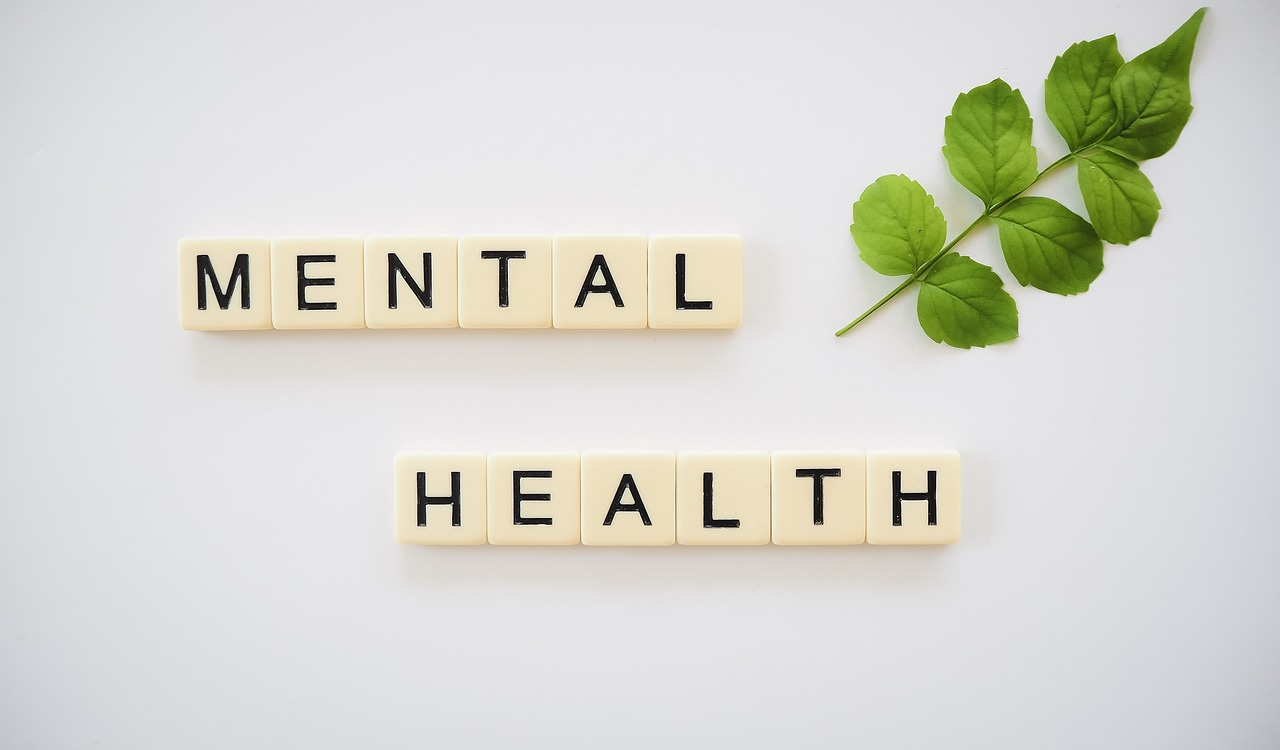Are you a prepper looking to maintain your mental well-being in preparation for any unforeseen event? Look no further! This article presents the best strategies for prepper mental health, ensuring that you can stay mentally strong and resilient during any crisis. From developing a positive mindset to practicing self-care, these strategies will equip you with the tools needed to navigate difficult situations with ease. Stay tuned and discover how you can prioritize your mental health while preparing for uncertain times.
Maintaining a Positive Mindset
Cultivating positivity
Maintaining a positive mindset can be challenging in times of uncertainty and stress, but it is an essential aspect of prepper mental health. Cultivating positivity involves intentionally focusing on the good in your life and embracing optimism. This can be achieved by practicing gratitude, seeking out positive experiences, and surrounding yourself with supportive and uplifting individuals. By consciously choosing to adopt a positive mindset, you can better navigate the challenges that come with being a prepper.
Practicing gratitude
One effective way to cultivate positivity is by practicing gratitude. Taking time each day to reflect on the things you are grateful for can shift your perspective and promote a more positive outlook. It can be as simple as writing down three things you are grateful for each day or expressing gratitude towards others. By actively appreciating the blessings in your life, you can enhance your mental well-being and build resilience in preparation for any potential crisis.
Optimizing self-talk
Another crucial aspect of maintaining a positive mindset is optimizing self-talk. The way you speak to yourself can greatly impact your mental health and overall well-being. Instead of dwelling on negative thoughts or self-criticism, strive to replace them with positive affirmations and constructive self-talk. By training your mind to focus on the strengths and capabilities you possess, you can develop a resilient mindset that will serve you well in any challenging situation.
Building Resilience
Developing coping mechanisms
Building resilience is crucial for preppers, as it helps them cope with and recover from adversity. Developing effective coping mechanisms involves identifying healthy ways to manage stress and difficult emotions. It can include activities such as exercise, meditation, journaling, or engaging in hobbies. By practicing and implementing these coping mechanisms into your daily life, you can enhance your ability to bounce back from setbacks and maintain a strong mental and emotional well-being.
Enhancing problem-solving skills
Being prepared means being able to handle unexpected situations and problem-solve effectively. Enhancing your problem-solving skills can greatly contribute to your mental health as a prepper. Take time to reflect on different scenarios and develop strategies for problem-solving. This can include researching and learning new skills, practicing critical thinking, and anticipating potential challenges. By honing your problem-solving abilities, you can approach obstacles with a calm and efficient mindset, reducing stress and increasing your overall preparedness.
Embracing change
Change is inevitable, and being open to it is crucial for building resilience. As a prepper, adaptability is essential in navigating unexpected circumstances. Embrace change by cultivating a mindset of flexibility and willingness to learn and adjust. Acknowledge that plans may need to be modified and be open to new ideas and perspectives. By embracing change, you can cultivate a sense of resilience that allows you to face challenges head-on, enabling you to overcome obstacles and maintain a positive mindset.

Fostering Social Connections
Establishing a support network
Building and maintaining a support network is vital for prepper mental health. Foster connections with like-minded individuals who share your interest in preparedness and are supportive of your goals. Establishing a support network can provide you with a sense of belonging and understanding, as well as a valuable resource for exchanging knowledge and experiences. By fostering social connections, you create a strong sense of community and mutual support that can contribute to your overall well-being.
Participating in community activities
Engaging in community activities related to prepping can further enhance your mental health. Look for local groups or organizations that advocate for preparedness or participate in volunteer opportunities that align with your interests. By actively participating in community activities, you not only contribute to the overall resilience of your community but also create meaningful connections and friendships. The sense of purpose and camaraderie gained from these activities can have a positive impact on your mental well-being.
Maintaining open communication
Communication is key in fostering social connections and maintaining prepper mental health. Being open and honest with your support network about your concerns, fears, and goals can provide a sense of relief and understanding. Sharing experiences and concerns with others who can relate can be incredibly supportive. Additionally, maintaining open communication with loved ones who may not share the same interests can help bridge any gaps and provide a support system outside of the prepper community. By nurturing these open lines of communication, you can strengthen your social connections and maintain a healthier mindset.
Managing Stress
Engaging in relaxation techniques
Managing stress is vital for prepper mental health, as stress can have detrimental effects on overall well-being. Engaging in relaxation techniques can help reduce stress levels and promote a sense of calmness. Practices such as deep breathing exercises, meditation, or yoga can help activate the body’s relaxation response and effectively manage stress. Find relaxation techniques that work best for you and incorporate them into your daily routine to keep stress levels in check.
Prioritizing self-care
Self-care is not selfish; it is essential for maintaining mental health and well-being. Prioritizing self-care involves recognizing your needs and taking steps to meet them. This can include activities such as getting enough sleep, eating a balanced diet, and engaging in activities that bring you joy and relaxation. Make time for self-care every day, even in the midst of preparing for emergencies, as taking care of your mental and physical health will ultimately enhance your preparedness efforts.
Setting realistic goals
Setting realistic goals is crucial in managing stress and maintaining a positive mindset. Break down larger tasks into smaller, manageable steps. By setting realistic and achievable goals, you reduce the risk of feeling overwhelmed and increase your chances of maintaining motivation. Celebrate small victories along the way and acknowledge your progress. This will help you stay motivated and reduce stress levels as you work towards your preparedness goals.

Seeking Professional Help
Recognizing signs of mental distress
It is important to recognize the signs of mental distress and seek professional help when needed. Sometimes, despite our best efforts, managing mental health on our own may become overwhelming. Signs of mental distress can include persistent feelings of sadness or anxiety, changes in sleep patterns or appetite, difficulty concentrating, or withdrawing from social activities. If you notice these symptoms persisting or interfering with your daily life, it may be time to seek professional help.
Consulting therapists or counselors
Therapists or counselors can provide valuable guidance and support in managing prepper mental health. They are trained professionals who can help you navigate through difficult emotions, trauma, and stress. Consider reaching out to a therapist or counselor who specializes in trauma or anxiety if you find it challenging to cope with the uncertainties and challenges associated with preparedness. Seeking their guidance can equip you with coping strategies and tools to maintain a healthy mindset.
Joining support groups
Joining a support group specifically tailored for preppers can also provide significant mental health benefits. Support groups allow you to connect with others who share similar experiences and challenges. They provide a safe space to express concerns, seek advice, and gain insight from others who are on a similar journey. Support groups foster a sense of community and can be a valuable resource to enhance your mental well-being as a prepper.
Developing Essential Skills
Learning first aid and emergency response
Developing essential skills is not only practical for preparedness but also beneficial for prepper mental health. Learning first aid and emergency response techniques can boost your confidence and readiness in handling potential crises. It provides a sense of empowerment and control in uncertain situations. By gaining these skills, you can approach emergencies with a level-headed mindset, reducing stress and anxiety.
Acquiring survival skills
Acquiring survival skills is an important aspect of prepping and can greatly impact your mental well-being. Learning skills such as fire starting, shelter building, or navigation can instill a sense of self-reliance and preparedness. When you possess the knowledge and ability to provide for your basic needs in emergency situations, you can feel confident in your ability to handle unexpected challenges, ultimately contributing to a more positive mindset.
Gaining knowledge in self-defense
While it is unfortunate, the reality of the world is that self-defense is sometimes necessary. Gaining knowledge in self-defense techniques can have a significant impact on prepper mental health. Understanding how to protect yourself and your loved ones in potentially dangerous situations can help alleviate fear and anxiety. Consider taking self-defense classes or learning basic self-defense techniques to empower yourself mentally and physically.

Maintaining Physical Health
Engaging in regular exercise
Physical and mental health are closely intertwined, and engaging in regular exercise is crucial for both. Exercise releases endorphins, which are natural mood-boosting chemicals in the brain. Regular physical activity can provide stress relief, improve sleep quality, and enhance overall well-being. Find an exercise routine that suits your needs and preferences, whether it is jogging, weightlifting, or practicing yoga. By prioritizing physical health, you are also investing in your mental health as a prepper.
Eating a balanced diet
Nutrition plays a vital role in prepper mental health. A balanced diet, rich in fruits, vegetables, whole grains, and lean proteins, provides the necessary nutrients for optimal brain function. It fuels your body and mind, promoting mental clarity and overall well-being. Avoid excessive consumption of processed foods or sugary snacks, as they can contribute to mood swings, fatigue, and other negative effects on mental health. By nourishing your body with wholesome foods, you are supporting your mental health as well.
Getting enough sleep
Adequate sleep is crucial for prepper mental health. Sleep allows your body to rest, recharge, and repair itself. Lack of sleep can contribute to increased stress levels, impaired cognitive function, and reduced emotional resilience. Establish a consistent sleep routine, prioritize quality rest, and create a sleep-friendly environment to foster healthy sleep habits. By ensuring you get enough sleep each night, you can better cope with challenges, think clearly, and maintain a positive mindset.
Staying Informed
Keeping up with current events
Staying informed about current events is not only important for general knowledge but also for prepper mental health. Being aware of local, national, and global events can provide valuable insights into potential threats or risks. Stay updated on news related to natural disasters, public health concerns, and any other factors that may impact your preparedness efforts. However, it is crucial to find a balance and not become overwhelmed or consumed by negative news. Choose trusted sources and allocate a specific amount of time each day for staying informed.
Updating disaster preparedness plans
As new information emerges, it is essential to continually update your disaster preparedness plans. Research and stay informed about any changes in emergency response protocols, evacuation routes, or recommended supplies. By regularly reviewing and updating your plans, you enhance your preparedness levels and alleviate anxiety associated with uncertainties. Stay organized and ensure that your plans reflect the most current information available.
Educating oneself on potential threats
Knowledge is power when it comes to prepper mental health. Educating yourself on potential threats and risks in your region can help you make informed decisions and prioritize your preparedness efforts. Research local hazards, such as severe weather patterns, geological risks, or public health concerns. Understand the warning signs and how to respond in each scenario. By equipping yourself with knowledge, you increase your confidence and reduce anxiety concerning potential threats.

Finding Purpose and Meaning
Engaging in hobbies and interests
Finding purpose and meaning in your life is vital for prepper mental health. Engaging in hobbies and interests that bring you joy and fulfillment can contribute to a positive mindset. Whether it is gardening, painting, playing an instrument, or participating in sports, allocating time for activities you love promotes a sense of purpose and fulfillment beyond preparedness. These activities provide a healthy balance and allow you to embrace the present moment, leading to overall improved mental well-being.
Volunteering and helping others
Helping others is not only beneficial for the community but can also have a profound impact on your prepper mental health. Volunteering allows you to contribute to a greater cause, fostering a sense of purpose and fulfillment. Look for local volunteer opportunities, whether it is assisting with disaster relief efforts, supporting community organizations, or tutoring individuals in need. By helping others, you will experience a sense of gratitude, meaning, and interconnectedness, ultimately enhancing your overall mental well-being.
Setting meaningful goals
Setting meaningful goals is crucial for finding purpose and maintaining prepper mental health. Reflect on your values and aspirations and define what success looks like to you. Set goals that align with your prepping journey and personal growth. Whether it is becoming self-sufficient in growing your own food or educating others about preparedness, these meaningful goals provide motivation and a sense of fulfillment. By continuously working towards and achieving these goals, you create a deeper sense of purpose, contributing to a positive mindset.
Balancing Preparedness and Everyday Life
Avoiding obsession with worst-case scenarios
While it is important to be prepared, it is equally important to avoid obsessing over worst-case scenarios. Constantly dwelling on potential disasters or emergencies can negatively impact prepper mental health. Strive to find a balance between preparedness efforts and living in the present. Remind yourself that preparedness is about being ready, not about living in a state of constant fear or worry. By maintaining a healthy perspective and focusing on the present moment, you can reduce anxiety and maintain a positive mindset.
Maintaining a sense of normalcy
In the midst of preparing for potential emergencies, it is crucial to maintain a sense of normalcy in your everyday life. Engage in activities that bring you joy, spend time with loved ones, and pursue your interests and passions. By maintaining a balance between preparedness and everyday life, you create a healthier mindset and perspective on your prepping journey. Embrace the things that bring you happiness and fulfillment, allowing you to navigate challenges with a positive outlook.
Finding joy in the present
While it is important to be prepared for the future, it is equally important to find joy and appreciation in the present. Take time to enjoy simple pleasures, spend time with loved ones, and practice mindfulness. Cultivating gratitude for the present moment can greatly enhance your prepper mental health. By finding joy in the here and now, you are better equipped to face challenges and maintain a positive mindset, regardless of what the future may hold.
In conclusion, maintaining prepper mental health involves various strategies that promote positivity, resilience, and well-being. From cultivating a positive mindset and building resilience to fostering social connections and managing stress, each aspect contributes to overall mental well-being. Seeking professional help when needed, developing essential skills, maintaining physical health, staying informed, finding purpose and meaning, and balancing preparedness with everyday life are all crucial components of prepper mental health. By incorporating these strategies into your life, you can navigate the challenges of preparedness with a positive mindset and be better prepared to face any potential crisis.

